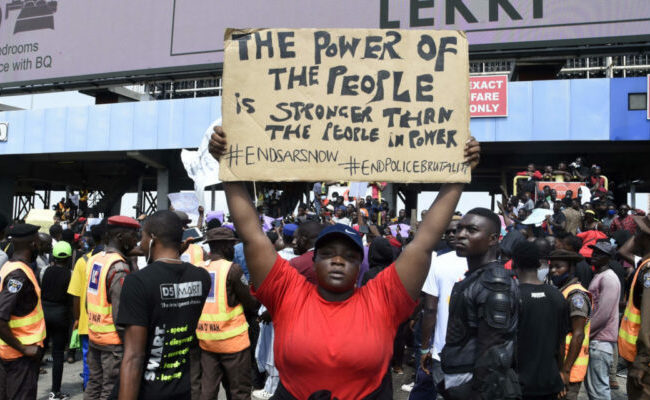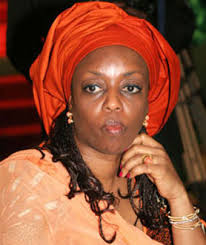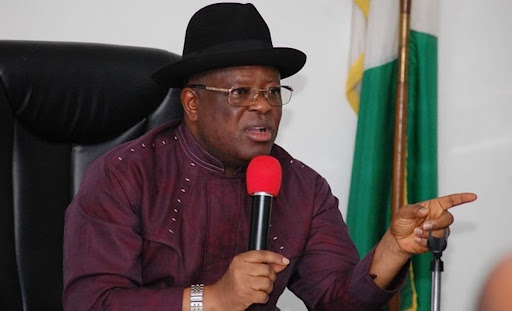Politicians rattled in the #EndSARS Tsunami

By Felix Oboagwina
Nigeria is not cursed with hurricanes and tornadoes. But October’s #EndSARS protests finally cut across the country like a devastating Tsunami that shook the entire landscape and left sorrows, tears and blood in its trail.
It all started like a gentle ocean breeze after the country turned 60 on October 1.
Tons of young Nigerians left the comfort zone behind their keyboards and smartphones to file through the streets for a peaceful protest aimed at highlighting and terminating years of brutality their generation suffered from a dreadful arm of the police that operated like the Gestapo in Adolf Hitler’s Nazi Germany.
The dangerous excesses of the Special Anti-Robbery Squad (SARS), section of the Nigeria Police had reached a crescendo and time had come to send it to hell. Previous outcries had pushed authorities to rechristen SARS as FSARS.
Even then, the leopard merely changed its spots but maintained its killer instincts. It arrogantly strutted through Southern Nigeria’s landscape especially, carrying out extralegal and extrajudicial maltreatment of young people on the flimsy excuse of being suspects of fraud, “Yahoo Yahoo,” “419” and scams.
This was poles outside SARS’s core mandate to confront armed robbery and violent crimes. Human rights abuses reigned in the dark cells of SARS, with officers commercialising their mandate in the most brazen and undignified manner.
They operated like terrors and terrorists. In their Awkuzu cells in Anambra State, inmates were reportedly randomly killed and their body parts sold by rogue police. “IPhone no be gun!”
youths chanted as they flowed through the streets in their hundreds of thousands. “#End SARS!” In the global village that the world has become, Nigeria’s anti-SARS campaign clearly found impetus in the US where a rainbow coalition of several million Americans rose up in the #BLACKLIVESMATTER protests against police brutality.
Beginning from Lagos, the nation’s commercial centre and trendsetter for Nigerian life, the #EndSARS protest soon scaled up into a national movement. It caught on like wildfire.
Through the South-West state capital cities of Abeokuta in Ogun State, to Ibadan in Oyo State (and strangely through the hinterland of Ogbomosho), through Oshogbo in Osun State, Akure in Ondo State and Ado-Ekiti in Ekiti State, the Tsunami slammed into Benin in Edo State.
It swept through the entire South-South, South-East, North-Central and Abuja the nation’s capital. Young Nigerians in T-shirts and bearing placards, all echoed #EndSARS. Governors did not know how to react to this gentle breeze: To welcome it or to rebuff it.
Rivers Governor Nyesom Wike announced its outlawing in the state. But when the defiant youth hit the streets of Port Harcourt in formidable formation, His Excellency flowed with the bandwagon, seizing the moment to recall that he had last year petitioned against the excesses of the unit that local politicians in the party ruling at the Centre deployed to intimidate opponents.
In Lagos, Governor Babajide Sanwo-Olu finally met with them and assured them and rushed off to deliver their five-point demand to President Muhammadu Buhari. It informs why people still cannot wrap their head around why he did what he later did.
The movement got support from individuals and corporate organisations and clerics, as media influencers in its driving seat rendered an account of incomes, and the youth demonstrated financial transparency and decorousness that held out the promise that Nigeria’s new generation offered a better deal.
However, the classiness and decorum of the #EndSARS conversation soon dissipated. In Abuja, counter-campaigners under the aegis of #ProSARS trooped out to unleash mayhem on #EndSARS protesters, spreading death and destruction to not just the young elements but to Southerners and their businesses.
In Benin, suspected “Tigers” and “Lions” worsted in the last election gave vent to their pent-up jealousy.
They attacked the campaigning youth, injuring and killing a good number. Characters suspected of having links with the government amplified this lawlessness by launching a jailbreak on two prisons in the state.
Things went downhill from that point on.
The Lagos governor pressed the panic button by declaring a 24-hour curfew on Tuesday October 20, which quickly became the trigger for the Tsunami that spiralled from the coastal state and mushroomed into an unbelievable nationwide mayhem.
Youths gathered to observe the curfew at their usual Lekki Tollgate rendezvous, came under gunfire attack from soldiers ostensibly invited by Sanwo-Olu.
This revolution was televised! Miniature cameras of countless phones beamed the sacrilege on social media worldwide.
How could the Nigerian Army launch an unwarranted, deadly attack on peaceful flag-waving, anthem-singing youngsters protesting peacefully? It provoked a Tsunami of outrage and anger.
The tidal waves slammed into several commercial buildings in the vicinity and the entire state, and fanned into a nationwide blizzard of record-breaking violence this nation had never known.
By the time the smoke died down, no fewer than 205 police stations had been razed down and 22 cops slain.
The storm plunged Lagos N1 trillion in the red for damages suffered.
A yet imprecise statistics of dead and injured #EndSARS campaigners and ordinary citizens is still being compiled. Doing a cause-effect analysis, which politicians have been hardest hit by this #EndSARS Tsunami?
The list here is selective and by no means exhaustive. How will the entire episode likely define the political future of these politicians?
OMOYELE SOWORE In the end, this revolution exploded without the revolutionist. Sowore, 49, former students leader and Publisher of the online news medium SaharaReporters will rate as the revolutionist who missed the revolution train.
For a man currently facing treason charges for organising the September 2019 REVOLUTIONNOW campaign in which his group demanded an end to bad governance, the #EndSARS campaign turned anticlimactic. Soon after the protests began, Sowore launched envy-laden, sourgrapes tweets in which he levelled accusations about organisers making billions in negotiations to shelve the campaign.
When he finally appeared at the campaign ground in Abuja, protesters heckled him from the scene on the basis that his past as the Presidential Candidate of the African Action Congress (AAC), would stigmatise the ongoing campaign as political and give the government the ammunition to shoot it down.
‘’Come dey go! Come dey go!” they chanted at him. “We don’t want you here! Sowore, we don’t want you here!’’
As the noise of the heckling reached a dizzying pitch, the revolutionist had no choice but elope from the scene.
The youth leader suddenly became an outcast in his home constituency. BOLA AHMED TINUBU APC’s National Leader lost more than property in this entire episode.
Tinubu tumbled in the very eye of the storm. Many suspect the Jagaban of Borgu to be the unseen hand that micro-managed his protégé, Sanwo-Olu, into inviting the Army on that fateful night.
Haters, also, credit Asiwaju with instructing his son Deji’s agency to switch off its gigantic advert klieglights that every night illuminated the Lekki tollgate arena.
He also stands accused of instructing tollgate operators LCC to remove CCTV cameras from the facility.
In fact, some suppose that impatience got the best part of him, because as the supposed owner of the Lekki Tollgate where the lion’s share of protesters in Lagos encamped for 12 days, he lost toll totalling N234 million in those 12 days that protesters laid siege to the site.
In the wake of the Lekki bloodshed, irate Nigerians proceeded to set fire to two of his media outfits, Television Continental and The Nation newspapers.
Also torched were Oriental Hotel and the Lekki Tollgate hypothesised as being part of his vast business empire.
The attack on the Iga Iduganran palace of the King of Lagos, Oba Rilwan Akiolu, is also traceable to the monarch’s open relationship with Tinubu.
While reacting to the incident on the day he paid the governor a sympathy visit, Tinubu spoke in an ad lib interview that nearly landed him in more trouble.
He rather petulantly queried what the protesters were doing in Lekki in the first place.
And he used the occasion to quell rumours he had run away, saying, “I did not go nowhere!”
He also did some chestpounding, proclaiming himself by his two well-known titles, Jagaban and Asiwaju.
However, his speechwriters would later do a yeoman’s job the following day, churning out a statement that rendered him more sympathetic and empathetic. But will such efforts be enough to deodorise the stench from a man regarded as the most contaminated by this entire saga?
IPOB AND NYESOM WIKE The separatist Indigenous Peoples of Biafra (IPOB), with an already sagging reputation, dived further south in this episode.
Its leader Nnamdi Kanu made broadcasts on its rogue radio, virtually inciting his kinsmen against other sections of the country that he instructed should be razed to the ground.
IPOB members were also fingered in the killing of four police officers and six soldiers in the Rivers State community of Oyigbo, where a police station and court were also torched.
This led to Governor Nyesom Wike labelling the group a terrorist organisation and signing an executive order last Wednesday to outlaw its activities in the state.
He announced a compensation of N20 million to each slain security operative. Wike accused IPOB of attempting to “annex” Rivers.
All this represented a new low for an organisation that the Federal Government of Buhari had labelled terrorist in the past.
However, Wike slamming Oyigbo with an extended 24-hour curfew and unleashing the military dogs of war on its hapless residents, themselves victims in the entire IPOB saga, brought him opprobrium in the public eye, especially in view of the resultant humanitarian crisis.
YEMI OSINBAJO Often touted as a possible future President, the Vice President would have been the humane poster boy for the government, as he swayed with the emotional swing of the #EndSARS movement, making the right noise at the right time.
When the campaign broke, opposite to the reticence of his principal, the Professor of Law acclaimed citizens’ right of expression through public protests.
And when the shockwaves of the Lekki tragedy slammed into the psyche of an incredulous nation, Osinbajo immediately expressed sympathy with the victims. But his saintliness plays second fiddle aboard a pirates’ ship; and signals from the social media indicate that Osinbajo may have been ruled “guilty by association.”
BABATUNDE RAJI FASHOLA Fashola is, also, linked with a presidential ambition. But talk about the sympathiser who outshone and out-wept the bereaved.
The former Lagos State governor and incumbent Minister for Works and Housing would have escaped unscathed in the whole saga, but for a courtesy visit he made along with some South-West politicians to Lagos.
The visiting team arrived at the Lekki Tollgate and at an open spot, Fash “discovered” a camera that he gingerly picked with a towel and handed over to accompanying security operatives.
That singular act quickly turned the SAN into an object of ridicule, with mocking skits and comedy videos over his latent detective talent.
Fashola’s unconvincing discovery has proved a faux pas, a blunder, a booboo, a giant blot on a man touted as a possible presidential material.
MUHAMMADU BUHARI Under the Commander-in-Chief, the revolution was indeed televised, and neither President Buhari nor his handlers can get the world to “un-see” the already seen.
Many hold the Civil War veteran responsible for replicating China’s Tiananmen Square Massacre and South Africa’s Sharpeville Massacre in Nigeria.
In the wake of the #EndSARS campaign, Buhari came under harsh criticism for his failure to address the protesting youth nationwide.
And when he eventually did, post-massacre, he turned dumb over the Lekki shootings. The initial silence he maintained on the matter and the supposition that only he as the Commanderin-Chief could give the Army marching orders to mow down protesters placed Buhari’s neck on the slammer.
Although he quickly accepted the agitators’ five-point demand from the word go, the fact that he has neither sacked nor sanctioned anyone for the years of police brutality and the recent Lekki killings further eroded his popularity at home and internationally where Diaspora Nigerians have been doing anti-PMB chanting.
Many feel that Buhari lost a golden opportunity to wind up on the right side of history as a democrat, capable of tolerating open protests against his regime, just like his predecessor suffered from him.
Unfortunately, he watched as his supporters in Abuja, Benin and Lagos formed into pro-SARS gangs that unleashed violence, assault and battery on #EndSARS protestors.
They even killed in Abuja and burnt vehicles belonging to innocent car sellers. Worse still, government supporters there used official government vehicles, including police vans, to transport cudgel-wielding progovernment hoodlums to batter #EndSARS campaigners.
Considered even worse is that the government, through the regulator, the National Broadcasting Commission (NBC), clamped down on Channels and Arise television stations for their coverage of the protests.
Neither has it helped matters that as C-in-C, Buhari could offer no tangible statement about how the Nigerian Army entangled itself in a civil, peaceful protest. BABAJIDE SANWO-OLU Governor Babajide Sanwo-Olu, 55, could easily have clinched the medal of “Hero of the #EndSARS Demonstration,” going by the way he and his cabinet embraced the campaigners at the beginning.
When protesters formed a human barrier and blocked access to his office at Alausa, Ikeja, the Lagos governor and his deputy governor gallantly waded into their midst and engaged the youths.
Following this, he instantly jetted out to Abuja to submit their requests to the President, the first and perhaps the only governor known to have done so.
However, his patience appeared to have worn thinner and thinner with each passing day. On 20/10/2020, that Black Tuesday, being the 12th day of the protest, SanwoOlu called in the Military.
Deji Tinubu said Sanwo-Olu ordered lights-off at the arena. Soldiers stormed the darkened place and indiscriminately fired live bullets at protesters.
READ ALSO: #EndSARS: 2 dead as hoodlums burn Apapa Iganmu Police Station [VIDEO]
The governor reported two dead. Protesters insist there were more.
Initially, he denied calling the Military, but when he failed to recant, the Military high command let the cat out of the bag: His Excellency had indeed invited them to dislodge the protesting youth from the tollgate. It was a fatal error.
The entire episode has painted Sanwo-Olu as a liar, a Janus-faced hypocrite and a murderer by proxy.
EPILOGUE If the events of this last fortnight had taken place in the developed world, the political careers of politicians found on the wrong side of the #EndSARS Tsunami would by now be gasping for their last breath. But then, this is Nigeria.








